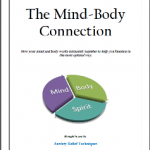Post Traumatic Stress Disorder Symptoms – What Is PTSD?
Post Traumatic Stress Disorder or PTSD occurs after a person experiences a traumatic event that affects their life and mental wellness and causes anxiety. If a traumatic event cannot be ignored or forgotten, it can take a mental and physical hold on a person and they can find themselves experiencing different emotions that can have adverse effects on their physical and psychological well-being.
Living a completely normal life long after a traumatic incident has passed can be tough for anyone, which is why the disorder has been so rightly named – PTSD.
If you know someone living with depression from PTSD, you will no doubt recognize the signs and symptoms I am about to discuss. If you don’t know anyone or you aren’t really sure what they are, hopefully I will be able to explain some of the post traumatic stress disorder symptoms to you.
What Are The Symptoms of PTSD?
- Reliving The Traumatic Experience
This is one of the most common signs of PTSD. In most cases, the person becomes afraid of sleeping because this will only make them experience nightmares of the traumatic occasion.
There are also times when a person relives the traumatic incident through flashbacks. These flashbacks are so real, that it makes it extremely difficult for them to recover from physical and emotional trauma. The greatest public awareness of PTSD is of returned soldiers who have experienced the atrocities of war. This awareness has been created largely through the medium of movies and television.
- Avoidance
Avoidance symptoms are some of the reasons why people suffering with PTSD are less likely to be able to live what many perceive to be a ‘normal’ life. There may be places, situations, events and people that may be regarded as safe by most…but would be regarded as a threat for a person with PTSD.
They see many of these as real threats because these are the things, people and places that would remind them of their traumatic incident. Some people with PTSD would prefer to lead a secluded life which will then make them even more vulnerable to severe anxiety and depression.
- Arousal
This symptom brings the individual to a heightened sense of hyper vigilance. Unlike before, they now view the world as a place so unsafe for people like themselves to live in.
As a result, they becomes increasingly alert and easily startled. They see to it that they are always on guard and always on the lookout for any signs of danger. This emotional arousal will also lead them to become irritable.
If left untreated, these symptoms will continue to haunt the person’s life. There are levels and degrees and sometimes their emotions can cause severe depression and cause many problems of reclaiming a ‘normal’ life. For others, life goes on…but it affects their decisions and their decision may not appear as black and white as your own.
Who Is At Risk of Suffering From PTSD?
Anybody can be a victim of a traumatic incident and anybody can suffer from PTSD. Unfortunately, there are people who are at high risk of being afflicted with this type of disorder such as those people who experienced different kinds of abuse during their childhood.
There are also people sexually abused as adults. Truck drivers and emergency workers are also at risk due to visual disturbances of accidents that they may encounter.
Survivors of natural calamities and man-made disasters are also vulnerable to the symptoms of PTSD. As you can see, many people are at risk.
- What Are Other Problems Associated With PTSD?
Those who have PTSD are often found to have problems with their personal and professional life. This is because many of them are having a hard time coping with their symptoms of PTSD.
Some may resort to alcohol and substance abuse, which may result in other anxiety disorders, such as depression and social anxiety. Just like a domino effect, all these problems will also make them have difficulty establishing healthy relationships with other people.
In addition, they may have the inability to reach their desired level of productivity in the workplace, which can often result in unemployment.
Since every person has a unique physical and psychological makeup, the treatment process for the symptoms of PTSD may also vary from one individual to another. It is important to remember that before a person starts to embark on any PTSD treatment, professional help must be sought.
If anyone has questions, please ask. My own social anxiety disorder, stems from a few traumatic events throughout my life…so I understand.
You can talk to me in the comments below…
Affiliate Disclosure
My website contains affiliate links, which means if you purchase any products mentioned in my articles, I may receive a commission. If you do, thank you!






Speak Your Mind